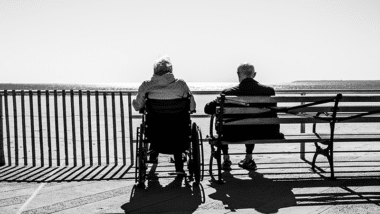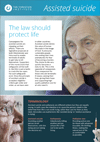Cancer doctors have shared concerns that legalising assisted suicide would impact palliative care and unduly pressure doctors.
Professor Mark Glaser, who is the former head of cancer services for Imperial College Healthcare NHS Trust, and Professor Benoit Beuselinck, who works in Belgium where euthanasia has been legal since 2002, shared insights in an interview for The Conservative Woman.
The House of Commons will debate Kim Leadbeater’s assisted suicide Bill later this month. If the Labour MP’s proposals become law, those deemed to be terminally ill would be allowed to receive help to kill themselves.
Normalisation
Professor Benoit Beuselinck is Professor of Oncology at KU Leuven, a research university in Belgium. He noted that the country now sees euthanasia as “the normal way to die”, with palliative care relegated to an alternative.
Beuselinck reflected: “Any decision of the doctor that would go against the demand of euthanasia is then easily seen as a lack of respect of the patient’s will and autonomy.”
But the professor noted that even in the presence of severe physical diseases, reports show that Belgians mostly seek euthanasia for psychological reasons such as fear of future suffering, loss of autonomy or being a burden to others.
He lamented that “doctors are now asked to decide if a life is still worth living and to solve these psychological problems by the administration of death”.
Palliative care
Professor Glaser highlighted the high quality of palliative care in the UK, assuring that “the symptoms of a disease can be managed – pain, agitation, depression, not being mobile – everything can be alleviated”.
He addressed how difficult it is to predict life expectancy, saying there are “hundreds of thousands of patients who are written off” who live longer than their prognosis.
The professor said he was “grateful” that he could not refer some of his own patients for assisted suicide, who were given one year left to life and are still “alive ten years later”.
Life expectancy
Last month, doctors and palliative care experts warned that ‘terminally ill’ people who seek assisted suicide could actually have years left to live.
Professor Katherine Sleeman, Laing Galazka Chair in Palliative Care, pointed out that the Department for Work and Pensions (DWP) reviews its benefits for terminally ill patients every three years — even though they must be expected to die within twelve months to qualify for support.
Senior oncologist Professor Chris Parker also told The Daily Telegraph that he recently saw a patient who was given a terminal cancer diagnosis ten years ago.
Parker warned: “I have little doubt that some patients would choose assisted suicide if it was legal, because they were told they had less than six months to live, but in truth, if they had not had assisted suicide, would have lived for years and enjoyed a good quality of life, because I’ve seen patients like that.”

The UK a ‘perfect storm’ for assisted suicide harms
Palliative care expert: ‘Blind support for assisted suicide downright dangerous’
Charles Moore: ‘Assisted suicide would damage the moral fabric of our society’
Poll on assisted suicide reveals ‘stark judgements’ about vulnerable


